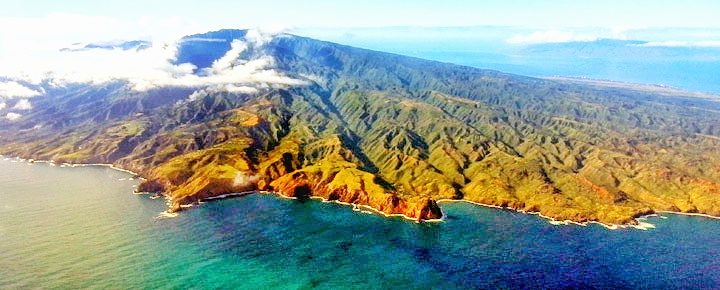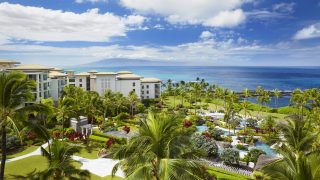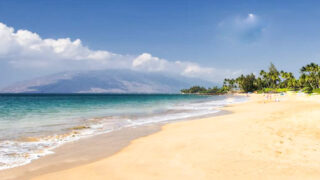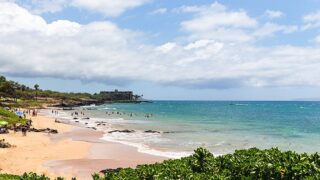Recent developments have revealed an August 2021 proposed legislation at the Maui County Council that aimed to drastically reduce the number of short-term vacation rentals. That proposal, was entitled “A bill for an ordinance amending Chapter 19.12, Maui County Code, phasing out transient accommodations in the apartment districts.”
That earlier move is set against the backdrop of the 2024 proposal and ongoing debates over Hawaii’s housing and tourism balance.
It becomes clear that the latest plan was not as sudden or knee-jerk as it recently appeared. A deeper dive into the economic forecasts by well-respected Hawaii economist Paul Brewbaker reveals that the implications of such zoning changes had been calculated much earlier than most of the public and many stakeholders realized.
Historical context of plans to drastically reduce Maui vacation rentals.
Back in 2022, Paul Brewbaker, the Senior Vice President and Chief Economist at Bank of Hawaii, created a whitepaper (attached) that was commissioned by the Realtors Association of Maui.
The whitepaper was intended to analyze the economic impact of potentially eliminating up to half of all vacation rental units from short-term use and dedicating them to long-term rental use.
Largely under-discussed at the time, the plan suggested a significant reduction in Maui’s tourism capacity and a corresponding decrease in economic output and jobs impacting accommodation, retail, real estate and rentals, food services, transportation, and business services.
Economic implications from prior research highlighted stark economic realities for Maui.
“Maui County output would decrease $2.74 billion. An additional $508.4 million in output would be foregone by Oahu, Hawaii, and Kauai through inter-county, inter-industry effects. Statewide total Hawaii output would decline by $3.25 billion. That according to Brewbaker in 2022.
“A loss of approximately 14,000 jobs in Maui County alone, with additional job losses across other counties.”
“Maui County earnings would decline by $747.7 million.”
“State tax revenues from Maui County would decline $137.3 million.”
These figures made clear the potential for a major economic downturn on Maui, directly correlating with a reduction in vacation rentals.
While the intent behind transitioning short-term rentals to long-term housing might stem from a genuine need to address housing shortages, the economic trade-offs have been known to be substantial. Brewbaker’s analysis provided a quantifiable look at what might be lost in terms of employment, earnings, and tax revenue—essential elements for the Valley Isle’s overall economic viability.
Reevaluation of earlier projections.
With these earlier analyses now becoming more visible amidst renewed scrutiny of vacation rental policies on Maui, stakeholders and policymakers are faced with reconsidering the appropriateness of such drastic measures and how they could significantly reshape the economic landscape of Maui for years to come.
What will be revealed as a result of the latest $300k research proposal.
Understanding the full scope of potential impacts from policy changes is crucial for balanced decision-making on Maui. As Maui County continues to navigate the complex interplay between tourism and local housing needs, the insights from past analyses, like Brewbaker’s, should provide valuable lessons on the need for thoughtful, data-driven policy development.
The upcoming study, which will be performed on behalf of the Maui County Council, will add to that earlier report. It is also designed to better understand the ramifications of losing half of Maui vacation rentals prior to the plan’s adoption. More importantly, it could help Maui avoid lawsuits that are brewing in relation to the proposed ban.
Please share your thoughts on these latest Maui developments
Get Breaking Hawaii Travel News







Maui’s politicians have a real knack for destabilizing the tourism industry. First, they give the mistaken impression tourists shouldn’t return to Maui until the island has completely recovered from the Lahaina wildfire. Next, they make tourists believe they are driving the island’s housing crisis by booking short-term rental suites for $3,000 per week (as if most locals could afford to rent these units if they weren’t being used by tourists). It’s no wonder so many tourists feel they are doing something wrong when they consider visiting Maui. It’s going to take a change in government before tourists start feeling welcome on Maui, and that’s a shame. One more thing: Don’t get me started on this study to determine the economic impact of shutting down 7,000 short-term rentals on Maui. Everyone knows it would be disastrous for the island’s economy.
Jeff, they are like politicians all over—they have the voting constituency and the money constituency. They are always trying to juggle these 2 groups and are rarely able to satisfy both. So, they go for the money—after all, money can buy votes.
I haven’t been to Maui in forever – too slow for my taste. We go to Waikiki every year. It’s got it all – the rambuctous, boisterous city and the beautiful open spaces 20 minutes outside of Waikiki.
The solution to this dilemma and to be fair to current STR owners and the jobs created by these rentals would be for Maui to take two steps. 1) Do not approve future new STR developments. and 2) Begin using the current tourist monies to build low income housing for Maui residents.
And make the low income housing real, ie, do not allow sales of these units for much higher prices in the future; keep them low income. These two steps could solve the problems, real or not, that Maui politicians claim are the issue.
During the last 5 years, STR property taxes of $43 million has been set aside for affordable housing. We are the largest contributors by far. But the government doesn’t like to build. If it was serious about workforce housing, it would have already started building publicly-owned infrastructure services. Look at the mess in Lahaina – they are fast-tracking new housing for fire survivors, but there is no water for the development. We turn over our hard-earned money to them, but no subsidized housing gets built. And some locals think we’re the bad guys.
Wouldn’t it just be smarter to build more housing in Maui. There is still plenty of land for building especially since the sugar cane fields are empty. It seems to me the only one that will benefit by short-term rentals being shut down is the hotels. There are many people that want to come to Maui that can’t afford $2,000 a night for a hotel. The county has planned for many years to make Maui the island for the rich. Now they’re discovering that their plan had flaws. What is worse is the price of the rentals. Long-term rentals are way overpriced now and that’s why everybody’s leaving. FEMA did not help this . They only made it worse when they asked landlord’s to ask their tenants whose leases were running out to move so that FEMA could put the homeless people from the fire that are staying in the hotels into that housing at twice, and sometimes triple the rent. Who’s bright idea was that?
Most Maui STVR property managers have slashed their prices.
My company cut prices by 60% and still no one is coming bc of the negative anti-tourist minority (20% of local residents) here getting all the attention. Plus anti visitor sentiment on the county council – which started before the fire.
Maui is almost empty and hurting. We small business owners are doing all we can to keep our team members employed but those in government are making it almost impossible. Why this needless policy? What is real goal of STVR ban?
to help out the hotel industry. It’s shocking how a little payola paid before an election pays off for the multinational owners of Maui hotels. During Covid, the Council directed the Tax Collector to base taxes on less than full value of property, and they’ve never returned it to full value, like STR owners have always paid. They have a much lower rate than us, and now the mayor is proposing to put their competition out of business. The talk of converting STRs to affordable housing is just a cover.
Oh this was initiated by the hotels, not for housing needs, such baloney!
This is just the latest disaster caused by incompetent politicians. Lahaina could have been prevented. The demise of the sugar business was obvious for years but politicians did nothing to attract new use for land and water. Voters get to decide and until they do, nothing will change.
We’ve been closely following the short term rental debate. The reduction in rentals will never happen because Maui cannot afford it. It is quite simple.
Great analysis everyone. It all boils down to three words: “Follow the money.”
Let’s see 2021 discussions held to greatly reduce STR’s . In 2022 white paper states projected decline of jobs, economic impact and reduction of income for state & county. Knowing the cutie of STRS would happen sooner or later, nothing was done to provide alternate job opportunities for all who will be affected directly or in trickle down. Now 2024. No job development. In non tourist sector. No drawing of other busness. .How Will residents live?
Dear BOH,
Thank you for this wonderful blog, that I have been reading for years. I am a California girl who has been in love with Hawaii for longer than I can remember. The first time I visited Maui was over 20 years ago, and I fell head over heels for the magnificent beauty, the fragrance of the air, the dancing palms and soft sandy beaches, and the aloha of a people that were trained to be honoring and respectful (as I had also been trained to be). I have been in a hula halau, here in CA, for over 10 years, where we are learning the stories, language, dances, and culture of Hawaii. I have done everything possible to make sure my husband and I can visit for 10 days most years. It is the only vacation we take.
Here is my question: What percentage of the residents of Maui are against tourism? The loudest voice I hear screams “stay away”. Is that just a small group of discontented residents, or is it the majority?
Mahalo nui:)
Hi DjF.
Thank you. That is a question that has no simple answer. But if you want to know if you can continue coming to Maui yearly and having a great time, the answer is definitely yes.
Aloha.
City and County of Honolulu should commission their own study too. Their WAR on STRs has been forcing business closures and job losses and damaging the economy for at least two years now.
Bruce,
Not gonna happen. They couldn’t care less. They don’t believe in small businesses (including STR owners). They believe in doing favors for those who can afford to grease their palms.
They don’t believe in the greatest wealth-creating system ever devised – capitalism. They believe in crony capitalism.
You haven’t considered that some people (on Maui) don’t think that money is God. There’s a culture here that may be hidden from a visitor’s view. Even though our guests may not see it, they often feel it. As silent as a smile, as unseen as a warm hug, as reliable as Grandma’s love. Aloha has a first place in our culture.
One thing is for sure…
Aloha is not about money. It is much by far, way more valuable.
Aloha is dead.
If that was true, why do I read daily about yet another program that cuts costs for low income people? There is free food, subsidized housing, breaks on property tax, forgiveness of utility bills, free wifi, etc, etc. which I actually support. But it’s salt in the wound when the recipients turn around and say, “We don’t believe in money.” Yeah.
They are , allocated $300,000 to “study”. I can do the calculation in about 15 minutes, just start at 7,000 STR’s at 80% occupancy , 2 guests, x 365 days and attrach numbers for $$ spent, lodging , airfare, car rental, meals , groceries etc, them avg the 17% tax ….that alone is $25,000 a day in transient tax. Multiply that times 365! Yeah over a billion in my estimate, For 300 k I could tidy up my estimate.
Having a banker write the “white paper” is all everyone needs to know about the motive behind reducing short-term rentals. The truth is, the only solution to the housing shortage in Maui is for the State to underwrite the construction of low-cost housing, because current property values preclude renting homes cheaply. This bill was never about providing housing to working-class folks; it was about serving up the big hotels with an opporunity to gouge visitors without competition.
As a retired Canadian vacationer, it has always been difficult dealing with the added cost of the Canadian to US dollar exchange, but now with Maui’s new restrictive policies eliminating half of the short term rentals and escalating taxes….then with a heavy heart I will never have the opportunity to see its sandy shores again.
Hang in there, Oryst, The STRs aren’t going anywhere. And don’t be shy about asking for a discount. We know how the exchange rate works against you. 🙂
STRs will never become affordable housing. The common costs for these units are simply too high. HOA costs, maintenance expenses and taxes alone result in costs on the order thousands per month. If the owner has a mortgage (and most do), they’ll need to recover those costs as well. The result will be studio condos that will cost $4,000+ to rent monthly. Certainly not what I would classify as affordable and they aren’t set up as permanent housing as the displaced people of Maui will tell you.
The government is in bed with the Resort corporations and that’s what is driving this decision. STRs hold resort rates down and that’s the reason this is happening. Just take a look at who was put in charge of the Tourism authority.
The Governor and the Mayors know that this won’t provide any significant level of housing relief, but they are beholden, so they tow the line.
I am a 1/52nd deeded timeshare owner in a 2 bedroom unit . My maintenance fees run about $1400. That translates to a HOA of about $5,600 a month. Who can afford that on top of rent or mortgage? Not a low/middle income worker that is for sure!
Kailei M, Timeshares are a completely different situation than STVR’s and have no business here.
I wish that were true. My timeshare is on the list to be eliminated.
Hawaii voters need to decide whether the significant loss of visitors, jobs, and income is worth the reduction in short term housing. As one looking from the outside in it does not make sense to me. Most landlords don’t want the hassle of long term rentals and the difficulty of evicting those who default on the rent. Moreover, Hawaii does not have an industry to replace the economic loss by redicing STR. It’s the old expression of biting one’s nose to spite its face, and it will have severe negativ economic impact on the state!
It gives me hope to see light coming to this topic. The mayor’s projections for minimal economic impact never made sense. The new study is being done “in house” correct? I hope they are qualified and honest.
I hope I’m wrong, but my suspicion is that the new study will find the answers they are looking for so that they can move forward. Hard to believe this move wouldn’t backfire spectacularly.
It may be difficult to rig the new study since there is already one published. I completely agree with statements regarding the current politicians’ allegiance. Those that back the new affordable housing will win including county officials and state legislators. Us STR owners might even accept bumping up the current 3% Maui TAT a few % if the county would dedicate the entire TAT to affordable housing or subsidies to workers in the tourism business.
If eliminating STR’s were long in the making then the tragic fire incident really had nothing to do with it. Was converting STR’s into long term housing a plan in the making years ago also. Hawaii’s problems and issues are getting really hard to comprehend and understand when cans of worms get opened up. Aloha, Mahalo, Hawaii residents. I feel your sadness.
I don’t think our problems are hard to understand. Decades of incompetent, inept, corrupt governance cause lots of problems
Amen Frank. Time to clean house.
Unfortunately, progressive policies rule the day in Hawaii and they have been proven to be ineffective at doing what they’re intended to do. I get that the alternative is not known and some think “the devil you know is better then the devil you don’t know”, but you have to, and pardon my George Orwell quote, “the party told you to reject the evidence of your eyes and ears”, at least consider that what has been happening is not good and a substantial change is needed.
I love Maui but I have seen in the last few years the awful conditions for the working people. High costs of housing and the low wages. I have no clue how to fix this, but I do believe the citizens of Maui Council can improve the entire situation as many mainland people have found vacation in Hawaii has become too expensive.
We are concerned that the upcoming analysis could be affected by who the present government hires
Liked the article. According to Honolulu Civil Beat accounts as well as Brewbaker’s LinkedIn page, he’s been talking about Hawaii’s economic issues for 35 years. That’s impressive. I took micro and macro economics on my way to a BS in physics (ultimately resulting in an MS) and knew in 2 minutes of my first review of the Hawaii economy what everyone should have seen coming. You live by the sword (tourism), you die by the sword.
Hawaii is never, and I’m confident in saying so, but would love to be proved wrong, ever, going to be more than a tourism based economy. It can’t afford the housing or infrastructure which works for workers, locals and the land. Won’t happen.
Hotels are already raising prices past what normal cost increases or inflation would project. Removing short term rentals will destroy what Hawaii’s economy enjoys.
Good luck. You’ll need it given the democrats who control are working to turn Hawaii’s economy into a socialist economy.
Pretty much everyone has lost patience with the Fishing for Housing Lahaina S7trong crowd who, dissatisfied with $1,000 a night hotel rooms and 3 meals a day, camped on the beach to demand “dignified housing.” After 6 months, even fire survivors told them to get a job and stop waiting for a house to fall from the sky. But this is who our mayor chose to pander to: people who want everything given to them. Forever.
Reducing short term rentals will simply result in reduced state income which will result in higher costs for the locals. It’s not complicated.
Thank you so much for this article. We knew that there is already a negative impact which will worsen should this ban take place. Now the question should be about who will be doing the research? Will they or their family and friends benefit in any way should this pass? How can we trust the research when only recently corruption with our politicians and contractors was just revealed? There should be an unbiased company doing this research. Can you shed any light on this?
Whom shall we all sue first?
The Emperor has no cloths. The answer is simple. Get busy building affordable housing. Spend the $300k on that. And when you vote, remember that the bill that almost all state legislators voted for to turn over STR rental control to the counties broke the camels’ back.
and there was plenty of testimony at the state level, warning them that some of our politicians at the county level are not capable of higher order thinking skills
It’s even more confounding that this proposal was years in the making; but, no economic impact study was planned until now. Better late than never?
Perhaps the study gives political cover for the huge lost revenue figures should the bill proceed as proposed.
We decided to use our Hawaiian Air miles for a family trip to Maui next month. Our preferred condo complex appears to be on the list to be removed…and not removed? The condo complex is listed as zoned for both apartment & hotel.
How would that work? By itself, this seems like a legal challenge for this property, or is a typo?
This property has little storage and limited parking. It’s hard to envision a family living in the complex we visit.
Thank you for visiting, Olga,
How ironic that an off-island visitor has more grasp of the illogic of this proposal than an elected mayor…
Families will not come to Maui and stay in Hotels they simply can not afford it. No cooking facilities, no laundry facilities
Who wants to put their kids in a high rise hotel?
Not to mention the dollars lost to the county when people stay away, actually it is allready happening now
I think middle class families will not come here. Wealthy familes will continue to pay whatever price. I’m sure that’s what Maui government is counting on. If tourist drop in half, but prices for hotels double what they are now. No real tax revenue is lost. Less tourist also means less resource (water, electricity, etc) being used. They have already said they want a better class of tourist coming here. What they mean is rich.
You’re correct.
Don’t forget the economic principle of Supply and Demand. If the number of short-term rentals is reduced (a reduction of supply) the rental owners who still have a unit to put out to rent, will meet the demand with higher rent.
The demand for more hotel rooms will then increase. As the availability of hotel rooms decreases as the demand for them increases, the hotels will charge more for the rapidly diminishing number of available rooms. This would drive up the demand for affordable short-term rentals but unfortunately someone passed an ordinance forbidding the increase number of short term rentals.
Don’t despair that the hotels are increasing their prices, that will keep visitors from coming. That seems to be what is really intended by the proposal.
Government isn’t really interested in creating more affordable housing. It could change the liveaboard rules for boat owners and free up hundreds of apartments very fast. It could enlarge the marina in Keehi lagoon in a short time. Boats from $20,000 to $100,000 are much more affordable than million dollar houses or even the chicken coop villages they make for the homeless. On shore bathrooms and showers and sewage stations protect water quality. Mooring fees pay for everything. It’s done all over the world and makes sense, don’t expect our leaders to do it. There’s no money for them, like they get working for the hotel lobby
Summary of Key Financial Impacts:
State Tax Revenue Decline: $137.3 million in GET & TAT receipts.
Economic Output Reduction: $2.74 billion decrease in Maui County’s output.
Job Losses: 14,126 jobs in Maui County, with a total of 16,681 jobs lost statewide.
Tourism Receipts: $1.67 billion annual decrease in tourism receipts.
Property Values: Potential downward pressure on property values and rents.
Local Business Revenue: Significant impact on accommodation, retail, food services, and other tourism-related industries.
Make any sense to implement this? Nope.
Better idea… instead of governmental overreach… Maui owns a lot of land and state and fed subsidized housing can be built. Win win. Leave our short term rentals alone.
Exactly! All we need is to get together on this.
This is a perfect solution. Keep the tourism economy alive (incl. STRs). Redirect the water to where it should be flowing (prior to pineapple). Designate tracts of lands in West Maui to build a new town with pre-cut homes for displaced workers using state and federal funds. Go forward not backwards.
Lots of good ideas bubbling up now. Many could be implemented with Public-Private Partnerships if we only had politicians (The Public part) that were working for the voters and the long-term good of the islands instead of themselves. There are billions of Private funding dollars just waiting. So why aren’t they being deployed? Business’ don’t get into big long-term deals with people they don’t trust.
It’s very easy to decide who to vote for. Elect challengers with business experience and avoid incumbents in every elected office.
But for some diabolic reason, the entire county gets dragged into Bissen’s House of Horrors. The Council does not truly need to wait six months for a study. There was one silver lining of the terrible fire. Affordable housing is starting to crop up all over the island. Projects that have been talked about for years are seeing movement and life. People just want to get back to reliable hours at work, jobs, stability. The pono thing for Bissen to do (now that he has the beach cleared) is to withdraw his bill. Do it, Man.
None of this report surprises me. The Maui government is scapegoating STR owners when the real issue is not approving enough workforce housing.
Here what I’d do:
1. Fast track everything to rebuild Lahania.
2. Figure out the best place for two workforce housing areas and fast track development. One in West Maui and one near Kihei.
3. Tell the world to visit Maui and encourage the biggest part of the economy.
The more I learn about the Mayor’s proposed STR ban, the more the ‘fishing for housing’ initiative by Maui Strong looks like a contrived event. Never let a catastrophe go to waste.
I wonder about the names of the people who orchestrated the event and the proposed STR prohibition.
The fire victims were victimized not only once, but they will be victimized twice if the Mayor’s proposed STR ban is adopted.
“Our Hawaii PAC” used the fire to fundraise for political purposes. The money is going to their candidates, not fire victims. But it was all done on backdrops of Lahaina burning, so that contributors were misled. The same PAC bought Lahaina Strong t shirts and fundraising gear.
So true. Many of the properties lost were uninsured, underinsured & or had illegal rentals; such as the 13 bedroom, 3 bath homes we are all aware of. Homes with non permitted add ons & undeclared rental income skating paying taxes. We can only guess that the names of these folks comprises Maui & Lahaina Strong. So many refusing to be housed elsewhere & complaining about their hotel life. Many still not working although there are currently many job positions open. This is unfair to the responsible, hard working residents & businesses as well as our much needed visitors. The state should go after the illegal activity first before attacking our economy. Then again they would have to start cleaning house at the top.
D
I’ve started questioning the Lahaina strong and Maui strong working relationships with the mayor. Seems very cozy and huge sums of donated money.
Now I am left wondering why $300,000 would be spent on a new study when such a recent legitimate study of the impact is available? So frustrating to witness this, when it is so clear to so many that the “powers that be” are trying to go in the wrong direction again.
Why do this again – because they want a different outcome and likely will somehow influence that outcome
BOH,
It would be nice if you could increase the allowable size of posts. Say 1,000 vs the current 750 characters.
Mahalo,
Rod
Hi Rod.
Thanks for suggesting that change! It’s done.
Aloha.
BOH,
Thank you – light speed. You could never get a job in government!
Mahalo,
Rod
Hi Rod.
Thanks. You’re sense of humor gets a thumbs up.
Aloha.
Maybe that’s why Brother Carl had me stand in the corner with a dunce cap in my junior year of high school!
He didn’t think I was that funny.
One day, right after Parents/Teachers night, in front of the entire class, he said to me, with his lips vibrating: “Walsh, how could such a bastard as you have such a nice mother.” No reply; all I could think was, “Thanks, Mom, I’ll finally pass German.” And, I wondered if that was approved language for a Catholic brother.
“With these earlier analyses now becoming more visible amidst renewed scrutiny of vacation rental policies on Maui, stakeholders and policymakers are faced with reconsidering the appropriateness of such drastic measures and how they could significantly reshape the economic landscape of Maui for years to come.”
I commend your phrasing here, BOH. You affirmed that it isn’t that the policymakers didn’t Know about these earlier analyses, it is that the analyses are now becoming More Visible, so they feel compelled to regroup. That’s why the study was ordered, and that’s why a recent Maui Planning hearing scheduled for June 10 was cancelled.
Exactly right, Pat!
Over 200 people submitted or were about to submit testimony to the Planning Commission’s June 10 meeting to object to a single sentence in the South Maui Draft Community Plan: “phase out short term rentals to create more long term rentals.” Those five volunteer Commissioners (should be 9) may be realizing for the first time what deep water they are wading in. This time, many of us won’t stand idly by while the mayor and certain council members attempt to sabotage the island’s future and economic well being.
What does Lahaina Strong want? One word: More. Or if you prefer, 2 words: Not Enough. Eventually even those in power whos hearts bleed the most will have to say no or no more. The question is where will that line be drawn?
A movement becomes a business and degenerates into a scam. History repeats itself. And most people don’t understand it. But it’s repeatable and predictable.